Exclusive: Ex-Labour leader gives speech at event where organisers say they aim to start party named Collective
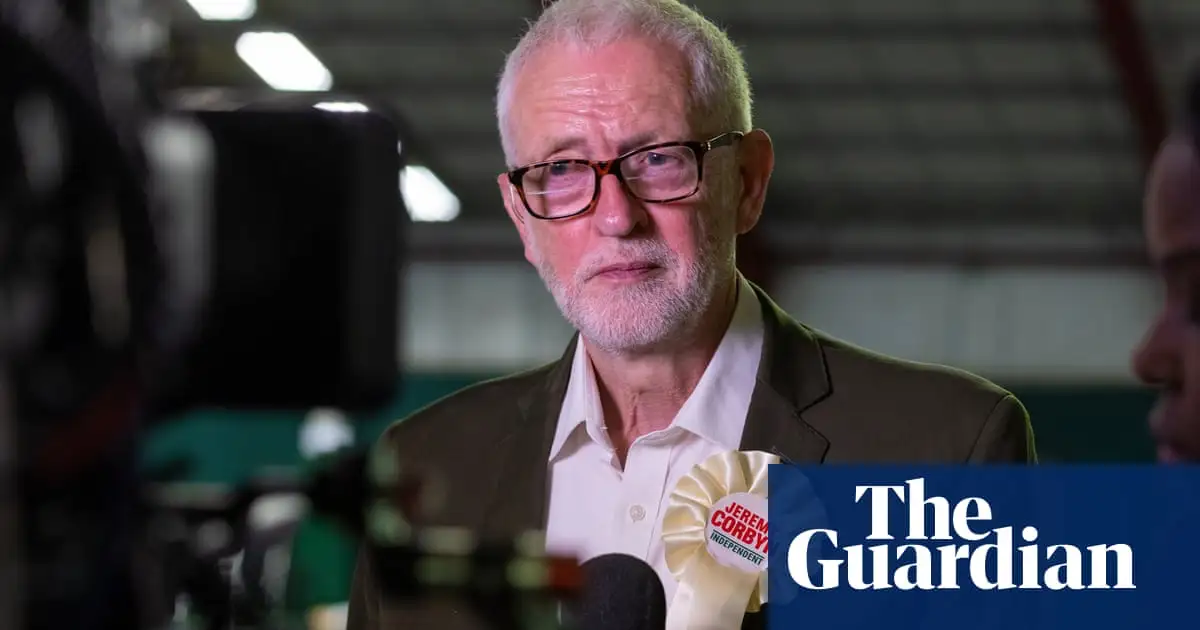
Unpaywalled archive link: https://archive.is/ms1Dl
> He argued that council tax, business rates and stamp duty should all be abolished and replaced with a land tax “that would actually act as an engine for growth” and supported former Conservative chancellor Jeremy Hunt’s desire to end national insurance, describing it as a “dumb form of income tax” as it did not apply to income from savings, investments, property or retired people. > > “Any of these things could be looked at by a reforming government and I believe they would all drive growth, they might even raise a bit of revenue, but the main game should be growth. One per cent on UK GDP is worth way more than mucking around with pension tax here or there.”
Unpaywalled archive link: https://archive.is/xBjYy
The article states that 70% of those occupying social housing have their rent payed for by housing benefit. The article also mentions that housing benefit comes from central government.
So the effect of this is a transfer of more money from central government to councils and housing associations. As well as an increase in the incomes of councils and HAs from those 30% that are well-off enough to no longer receive housing benefit but are still living in social housing.
I'd say this is less about reducing CO2 and more about making cities and towns nicer places to live and helping people live healthier lives.
I have no idea what the stats on this are, but I'd guess that the amount of emissions saved in people cycling more vs using a petrol car or electric car wouldn't actually be much compared to measures that reduce emissions from goods transport.
Transport secretary says government’s strategy for active travel could cut GP appointments by millions

YouTube Video
Click to view this content.
TBH I thought the article was actually particularly good because it specifically pointed out that "immigration" isn't one homogeneous thing.
We end up with these worst-of-all worlds outcomes because we talk about immigration as if it’s one thing when in reality it is many very different things, because we refuse to confront trade-offs — and because each side has its own conversational no-go areas.
I think that point of refusing to discuss tradeoffs is also particularly pertinent. Significant chunks of the electorate will happily vote for Reform but then moan about the lack of staffing in healthcare. Or conversely, others will happily quote the stats that on average migrants are a net benefit to the country, but then refuse to investigate this thought further and realise that this is an average and those benefits may not be spread evenly (perhaps some areas are even negatively affected).
Unpaywalled archive link: https://archive.is/jlyiS
Wouldn't this be pretty bang-on expected for less premium groceries where profit margins are much thinner?
For example, a food product retailing at £2 where £1.80 covers farming costs and operational costs, inflation of 10% will increase those costs to £1.98, to keep a 20p profit, the retailer would increase the price to £2.18 (9% increase). A more premium food product that retails for £3.50 where the farming costs are only slightly higher might have a £2 cost for the retailer with a much higher markup of £1.50. To keep that same profit after 10% cost inflation (to £2.20), the price would rise to £3.70 (5.7% increase).
Bill Stickers is innocent!
Unwalled archive link: https://archive.is/dd0K6
Unwalled archive link: https://archive.is/OP9ny
Macquarie - famous for fucking over Thames Water by creating a deliberately complex company structure so they could load it up with debt in order to pay out dividends.
Unwalled archive link: https://archive.is/w8qYz
Unwalled archive link: https://archive.is/0hDcx
Adrian Ramsay wants Labour to consider other options for a 114-mile pylon route across three counties.
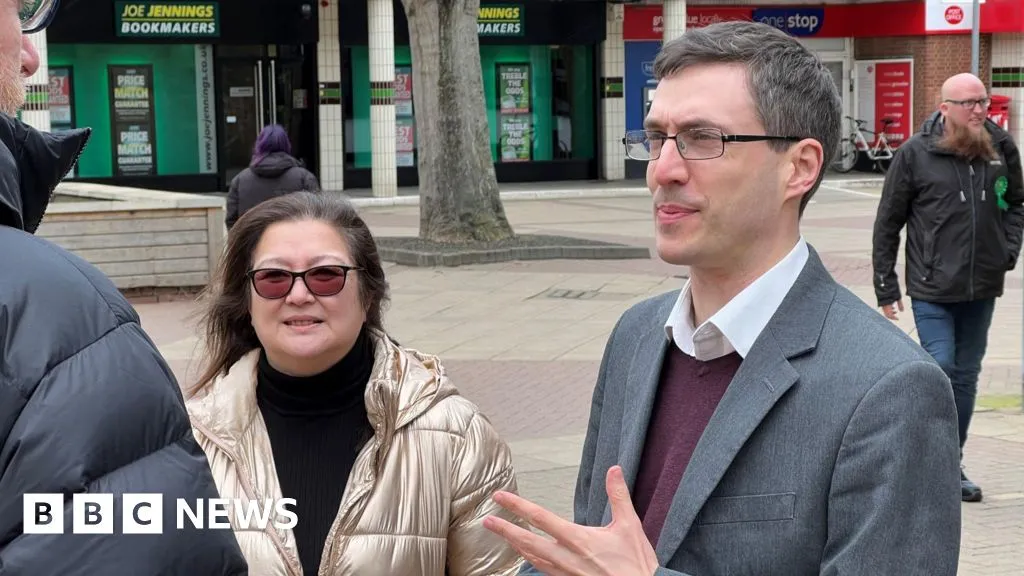
Full text archive link: https://archive.is/lhS3k
Some further thoughts from the FT politics newsletter:
> Labour has an ambitious target to increase the UK’s employment rate to 80 per cent — for context, the OECD average is 70 per cent, and the UK is currently at 75 per cent. If it could achieve this, the UK would be part of a small group of countries: Iceland, the Netherlands and Switzerland are the only OECD countries with employment rates above 80 per cent > > However, while the UK’s employment rate looks good next to its peers, it is also the only G7 country that has an employment rate lower than it was before the Covid-19 pandemic. So while it is an ambitious target, a) it is not an impossible one and b) the UK could almost certainly get closer to 80 per cent than it is now. > > One lever that Labour wants to pull to turn that around is to reform what jobcentres do — Delphine Strauss’s story is here — getting them to focus more on providing career advice than policing the benefits system. > > When government departments and agencies work well, they are obsessed with improving performance. When they are working badly, they are obsessed with improving performance indicators. When this happens in education it leads to grade inflation, because it is always in the interest of the government of the day to be able to point to better grades. (Some more thoughts on that here.) > > Jobcentres have essentially always been the part of the government that is most geared towards producing improved performance indicators rather than improved performance. While it matters a great deal to the UK’s economic performance whether someone who comes into contact with a jobcentre leaves with a better job than the one they had lost or with a new qualification, in political debates all that really matters is whether or not you can say that the number of people claiming unemployment benefit has fallen. > > One way Labour is trying to change that is, for the first time since the Thatcher government, by having two different ministers in charge of employment (Alison McGovern) and social security (Stephen Timms, who having been a very effective select committee chair and a former minister in the last Labour government, is perhaps the most Keir Starmer-y appointment it is possible to make) at the DWP. > > But it’s a big, big, big cultural change the party is looking to bring about in jobcentres, and doing so is a big part of how it is going to try and meet what is its most ambitious target when it comes to social policy.
Saw the first clip in the video and couldn't handle watching any more. I'm all for allowing people the autonomy to take their own sensible risks and avoid over safety-fying things, but some people are ridiculous (and selfish in this context). If you're going to go over a level crossing when the barriers are closed, at least have the respect to run across, knowing that you're doing something risky, rather than casually stroll through the danger zone!
No luck catching them rate cuts then, BoE?
Steve Reed will meet chiefs of companies including Thames Water hours after a crucial set of rulings by the industry regulator Ofwat, Sky News can reveal.
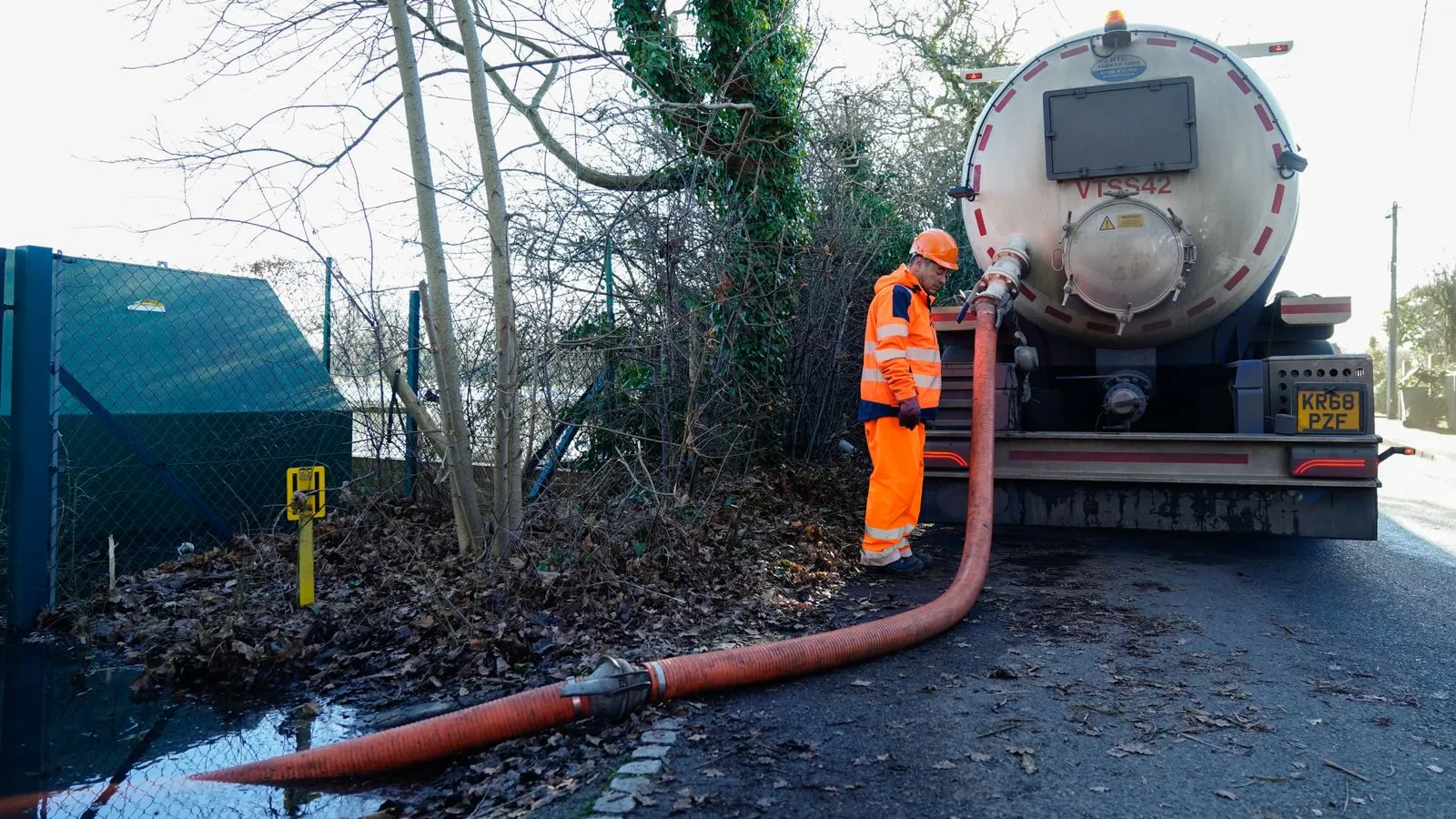
Full text archive link: https://archive.is/qKMCn

Source: RedfieldWilton@twitter
> Labour are more trusted than the Conservatives on EVERY policy issue prompted. > > Which party do voters trust most on...? > > (Lab | Con) > > NHS (42% | 17%) > Education (39% | 20%) > Economy (38% | 23%) > Immigration (33% | 21%) > 🇺🇦 (31% | 24%)
Very much agree with all these points. I also don't think it's that useful to be spamming this community with polls as they come out. But thought this was a helpful bit of information to see where things roughly stand at the beginning of campaign time.
Westminster Voting Intention:
- LAB: 45% (+1)
- CON: 19% (-2)
- RFM: 14% (+2)
- LDM: 12% (=)
- GRN: 5% (-1)
Via @techneUK , 22-23 May. Changes w/ 15-16 May.
Rory Stewart and Alastair Campbell react to the shock news that the UK will go to the polls on the 4th July.
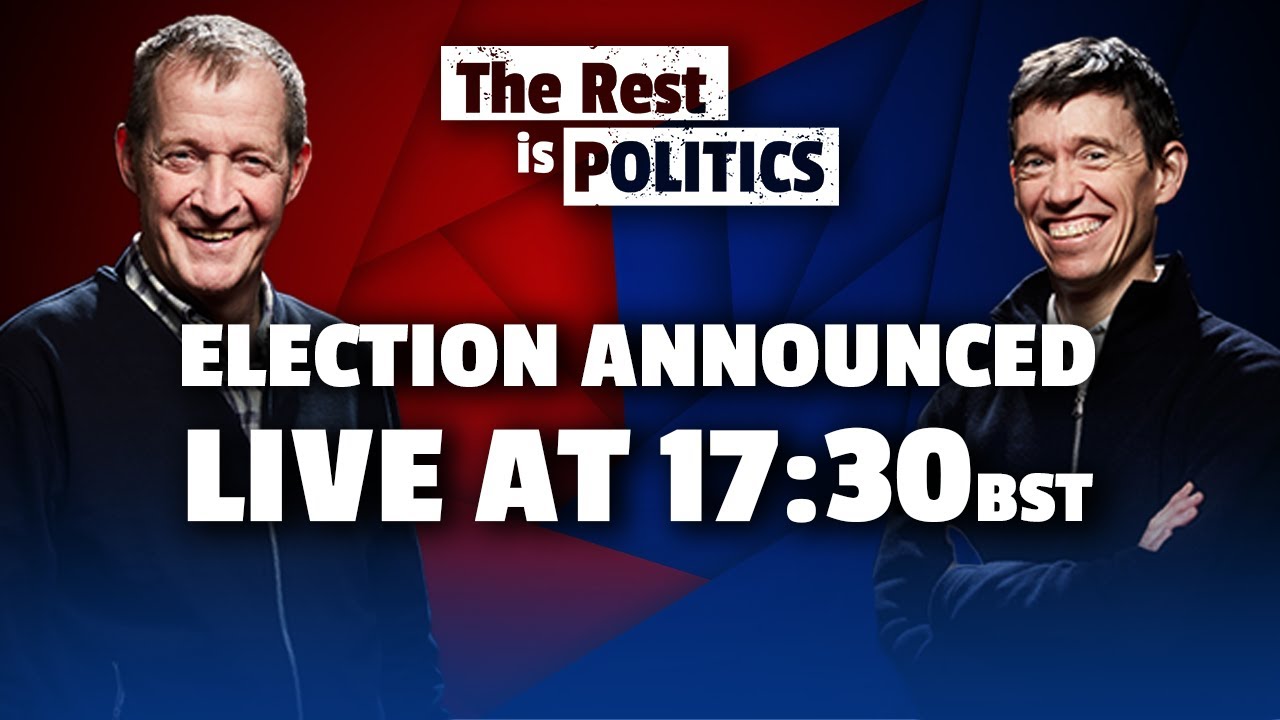
I've not listened to TRIP before but I know lots of people seem to be fans of their commentary.
* tory moment *
With the cabinet preparing to meet, Rishi Sunak’s spokesperson also declines to say if there will be a reshuffle
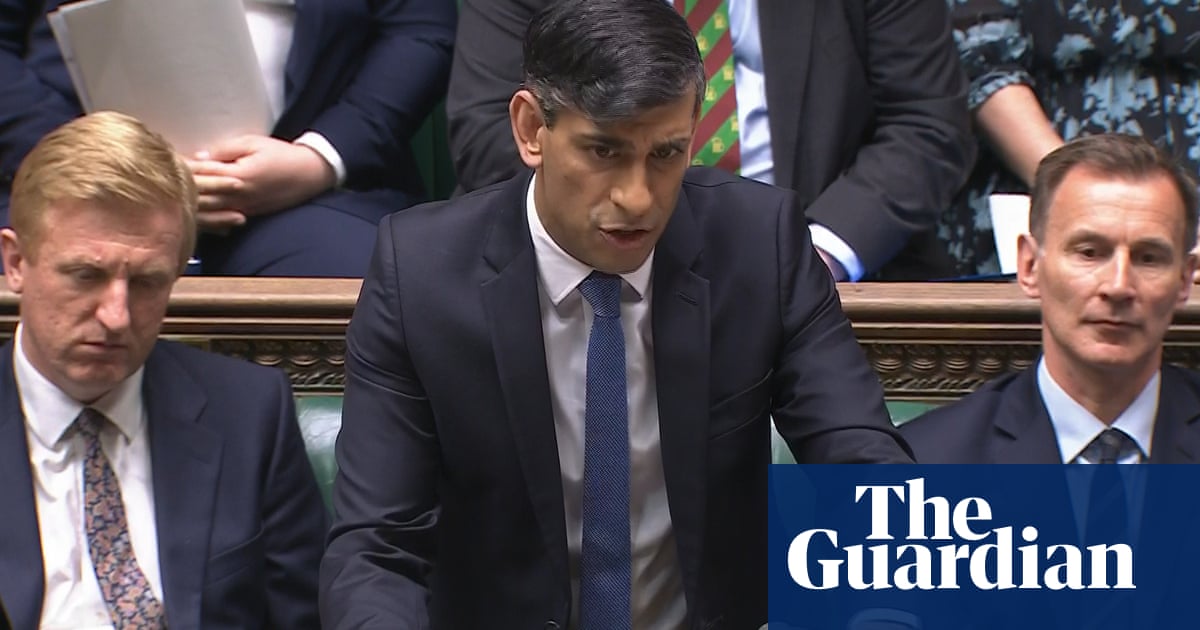
Full text archive link: https://archive.is/SDX09
---
Brewer will put £40mn annually into refurbishing its UK estate as pub groups regain confidence
Heineken is reopening 62 UK pubs it had closed in recent years and will put about £40mn annually into refurbishing its estate in the latest sign that pub groups are regaining confidence as cost of living pressures ease.
The move by the world’s second-largest brewer, which owns 2,400 pubs in the UK through its Star Pubs and Bars arm, will restore the number of operating outlets in its estate to pre-pandemic levels.
“Now is clearly a significant moment in terms of the resilience of pubs coming back and showing how they can still work very well for consumers up and down the country,” said Lawson Mountstevens, Star Pubs’ managing director.
Heineken, which leases out most of its pubs, has spent more than £200mn maintaining them over the past five years and plans to continue investing at a similar level.
This year it will put £39mn into the reopenings and makeovers across 94 outlets, mainly in suburban areas where more people work from home. The spending will include increasing kitchen space and improving gardens, as outdoor space has become more popular since the pandemic. A total of 612 pubs will benefit from investment.
“I would envision us investing at around those levels for the next four years or so,” Mountstevens said. Continued investment was Heineken’s “massive vote of confidence in the longevity of pubs in the UK”, he added.
Britain’s hostelries have been hard hit by the cost of living crisis; consumers are spending less money in pubs and bars than at any time since Covid lockdowns ended, according to recent research by Deloitte. Beer is one of the consumer goods they have particularly cut back on, FT research recently found.
Rising operating costs and financing challenges have also affected the sector. But the bullishness of Star Pubs is the latest sign that large players in the industry are shifting to the offensive. The pub sector expects improvements in trading and financing this year.
Greene King announced last week that it would invest £40mn in a new brewery in Bury St Edmunds, with plans for this to replace the existing brewery there in 2027. Punch Pubs announced last week that it had acquired 24 pubs from the Milton Three pub group, which fell into administration in November. The deal is believed to be worth about £15mn.
“Consumer confidence is beginning to return, which is reflected in the tentative signs of an uplift in pub sales,” said Emma McClarkin, chief executive of the British Beer and Pub Association, the industry body. “Investors are making big investments into the UK in our sector and confidence in the beer and pub sector for the long-term is strong.”
The UK has 45,300 pubs but 530 of them shut their doors last year, according to the BBPA. The number of closures was higher than even the height of the pandemic in both 2020 and 2021 when the government provided support.
Peel Hunt analyst Douglas Jack warned that borrowing costs still remained high for many private companies but added: “Confidence is improving as real disposable income is growing and interest rates are forecast to fall.”
I think their origial plan was to try and ensure that Daniel Korski, the CCHQ preferred candidate, would get selected by putting him up against insane choices like Susan Hall. Unfortunately Korski had to exit because of sexual assault allegations (name a more iconic duo than Tory politicians and criminal sleaze) leaving only the insane candidates.
This sort of situation has become a bit of a classic Tory tale with the amount of times similar things have happened since 2019.
The UK is too centralised, but experiments with devolution are in their infancy and still have mixed results
Full text archive link: https://archive.is/iZ7RM
One of the points made quite astutely in the FT comments section mentioned that ofwat was also strongly responsible for this.
Apparently the regulatory model is set up in the following way - in order to encourage investment in infrastructure, the calculated amount that customers are charged is based on a ratio of how much money is invested into infrastructure. Supposedly Thames Water and other water companies in England wanted to invest more in infrastructure, however ofwat did not allow it as they wanted to protect customers from price increases. Furthermore because of the silly shell game of holding companies that were set up to move the debt around, ofwat didn't understand just how much debt was being racked up and didn't make any moves to stop it.
However what this all shows is that the regulatory model is absolutely broken. So not only is ofwat toothless in allowing a ridiculous corporate structure to be set up to obfuscate the silly financial leveraging going on, they are also operating on an entirely faulty premise.
What it all shows is that trying to set up a functional privatised system for water companies that incentivises investment and works for citizens is extremely difficult, is prone to regulatory capture, is still under pressure from meddling ministers and ultimately costs more for customers and the government than servicing the government debt that would be used to pay for investment under a nationalised system.
Just bloody nationalised it.
Not to say I fully agree with the author's viewpoint, but this article is a good, non-sensational, explanation of the current Thames Water situation. Worth a read if you're interested in what's actually going on.
I never thought of it before but your comment just made me realise this would be a great backdoor way to get the PR ball rolling. Make the lord's elected with a full PR system. Maybe with half the seats going up for election every 7 years or something.
Counterstrike 1.6/Source/GO/2
Started playing around 2005. Playtime has waxed and waned over the years in my friend group, but we've generally played it fairly regularly for nearly 20 years now.
They pay a lower rate.
If they were dead set on doing a tax cut (unfortunately for the good of the country) at least they made it an NI cut rather than an income tax cut.
I can see a way forward for labour if they want to raise more money without straight up reversing these cuts by abolishing NI (or gradually reducing it to phase it out) and correspondingly increasing income and/or capital gains tax.
They can chalk it up as making the tax system fairer by removing the tax on which employees pay more than self employed or those with passive wealth-based income. Simultaneously they can say they are building on the one positive outcome of the previous budget.
Thanks for writing this.
When a nationalised company is seen as inefficient or poor service. We all instantly know who to blame. The ministers in charge of that company. Whereas we see an extra layer of blame for privrate non competing companies.
Specifically this aspect is not something I'd really considered before but it's an astute point.
The numbers quoted indicate much more of a sea change has occurred than I would have expected.
in the 1960s around an eighth of British voters switched their choice between elections. By the 1980s it was a fifth. At the last election Professor Edward Fieldhouse, a political scientist at the University of Manchester, and his colleagues concluded that most of the electorate were swing voters. Politicians see it on the doorstep. “In 1997 around 40% of voters were up for grabs but today it is probably around 70%,” says Jonathan Reynolds, Labour’s shadow business secretary and an MP in the north-west.
Maybe there's hope for PR within the next 20 years.
Mr Robot, you missed an important sentence:
Abolishing the non-dom tax regime would raise an estimated £3.6bn a year.